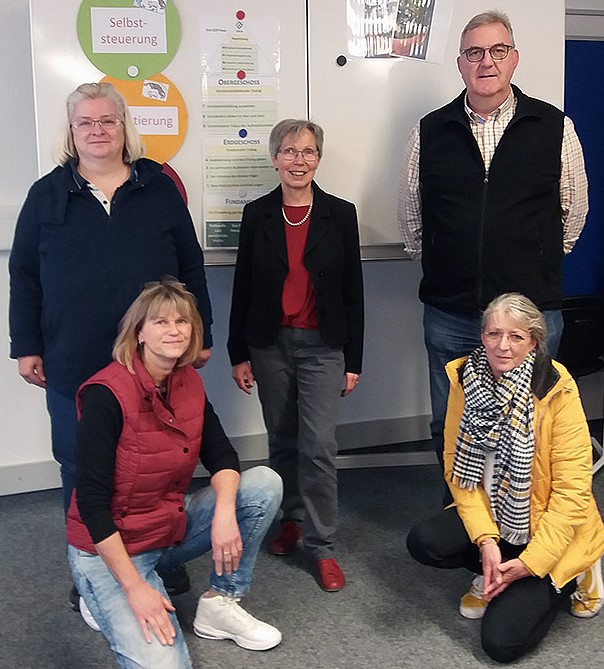In the city of Hameln, Germany, eight caregivers of older people became acquainted with the ICDP approach by attending a two-day workshop which was held in October 2020.
Most of the participants were already aware of the fact that the psychological needs of children and older people were not very different. The three dialogues of the ICDP programme (the emotional, meaning creating and regulative dialogue) are entirely relevant in relation to older people, especially when they suffer from dementia.
Right from the beginning of life, a child immediately needs the experience of being felt by another person, and towards the end of life, it is exactly the same. “But we all do it intuitively!” one of the participants said. Exactly! Most of the time, we do it unconsciously, because caring is a natural human response.
But in ICDP, we combine intuition with awareness. This is necessary, because older people in nursing homes live in an environment that often functions like a machine. Every caring action is measured in short time sequences and thus, caregiving becomes reduced to being merely a rational service operation – and as a result, the older person feels treated like an object.
In contrast to this, and to provide a balance, the job of caregivers in nursing homes is to respond emotionally to people in their care – something that is often undervalued as “unimportant” and as not being “the real” work.
In our workshop, the ICDP knowledge was able to strengthen participants’ self-confidence. They explored and understood that dealing with the emotions is definitely an important professional task! Through different examples, participants realized that it could only take 20 seconds of empathic interaction to prevent a person with dementia from becoming agitated, screaming, crying and trying to run away. We had lively discussions analyzing examples from daily experiences in nursing homes.
And in addition, the participants had a lot of fun during the exercise that involved reading emotions; this exercise fired their imagination and lead them to invent complete life stories based only on their observation of images of older persons’ faces. They became aware of the value of compassionate understanding. Time flew by as we playfully explored the power of positive interaction.
At the end of the workshop, all participants gained deep insights and felt empowered. Their final comments concerning the ICDP workshop were that it was knowledge-expanding, exciting, helpful, very close to everyday life and that it makes you think.
Let’s do more of this next time – and thank you for welcoming ICDP in the work with older people in Germany!
- Rita Crecelius

